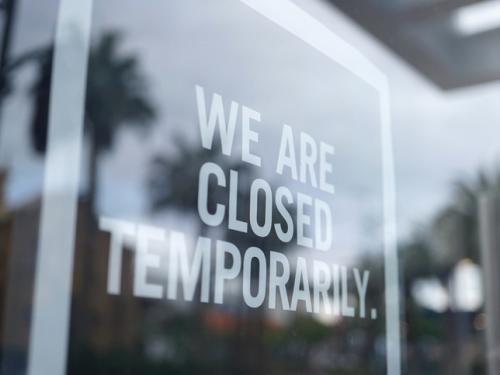Some major companies are demanding their employees return to the office. But the data says that workers don't want to go, forcing a showdown between labor and management. Does this mean that remote work is dead? If not, what is the cost of not returning to the office? In this episode of TribeTV, survey data is examined, and we see who has the leverage. A lot of data shared herein is courtesy of Invisible Technologies.
Need help attracting, recruiting, and retaining talent? Proactive Talent is ready to assist. Book some time on our calendar now.
Articles cited in this video:
- Total Unfilled Job Vacancies for the United States
- Top U.S. Cities Add 682 Million Square Feet of Office Space in 10 Years - CommercialCafe
- Apple, Google, Microsoft, and other tech giants are finally mandating a return to the office
- The Official List of Every Company’s Back-to-Office Strategy (updated weekly) | HubbleHQ
- In a world of self-driving cars, will the office still be a place worth visiting? Why Elon is wrong about remote work. | Invisible Blog
- Elon Musk asks all Tesla employees to come back to the office or quit
Click here for free business resources designed to make your business day, a little bit easier.
VIDEO TRANSCRIPT
Jim Stroud
00:00:00
Hello, Jim Stroud here, reporting for TribeTV. Imagine your boss calling you on the phone and say, "Hey, instead of working from home every day, I want you to return to the office and work nine to five, Monday through Friday, just as you did before," how would you respond to that? Well, I'll let you know what the collective response has been from workers nationwide on this episode of TribeTV. Elon Musk made headlines recently when he said this via a series of emails, "Anyone who wishes to do remote work must be in the office for a minimum, and I mean minimum of 40 hours per week or depart Tesla.
Jim Stroud
00:00:51
This is less than we ask of factory workers." Yeah. And he followed up that email with this: "The more senior you are, the more visible must be your presence. That is why I live in a factory so much so that those on the line could see me working alongside them. If I had not done that Tesla would long ago have gone bankrupt." As influential business leaders like Elon Musk continue to challenge remote work, a lot of workers are pushing back. Tech startup Invisible Technology surveyed 665 American workers on their attitudes towards remote work.
Jim Stroud
00:01:34
The survey found that 79 percent of American workers prefer to work strictly remote or at least in a hybrid environment. And 55 percent of workers said not having a work from home option is a deal-breaker for them when they're job hunting. You can learn more about this research right here, but here's some highlights: 62 percent of workers say they have left a job for more flexibility for where they could work. 69 percent of workers say they would take a pay cut of 5 percent or more for a job with more flexibility for where they can work.
Jim Stroud
00:02:13
And 62 percent of workers said they are a better employee when working remotely than in an office environment. The general attitude seems to be that workers want to work from home. But what about companies out there that are looking to follow Elon Musk's example. Is Tesla the only company requiring people to come back to the office? No. Case in point, Netflix CEO, Reed Hastings, apparently doesn't see any positives to working from home. In an interview with the Wall Street Journal, he stated quote, "Not being able to get together in person, particularly internationally, is a pure negative."
Jim Stroud
00:02:55
And you're going to add to that list, Apple, Microsoft, and Google. And as interesting as all that is, here's something else that caught my eye. In the past 10 years, US cities have added 682 million square feet of office space. The cost per square foot of office space varies widely across different cities with costs ranging from $20.97 in Atlanta to $74 in New York City. On the low end, that's about $3,000 per employee per year for office space in Atlanta. For New York City, that's $10,500 per employee per year for office space alone.
Jim Stroud
00:03:35
A lot of companies are spending a lot of money on unused office space. Makes me wonder just who is going to win in this little tug of war of getting remote workers to return to the office. Well, let's think this through. As of June 14, 2022, there are 11,494,000 unfilled jobs in America. And such being the case, companies have to be as flexible as they can to attract, recruit, and retain their workforce.
Jim Stroud
00:04:15
Clearly, the American worker has the advantage. How long they're able to keep that advantage though, only time will tell.
Comments
Previous Post
OnDemand Recruiting: Affordable Recruiting Help



